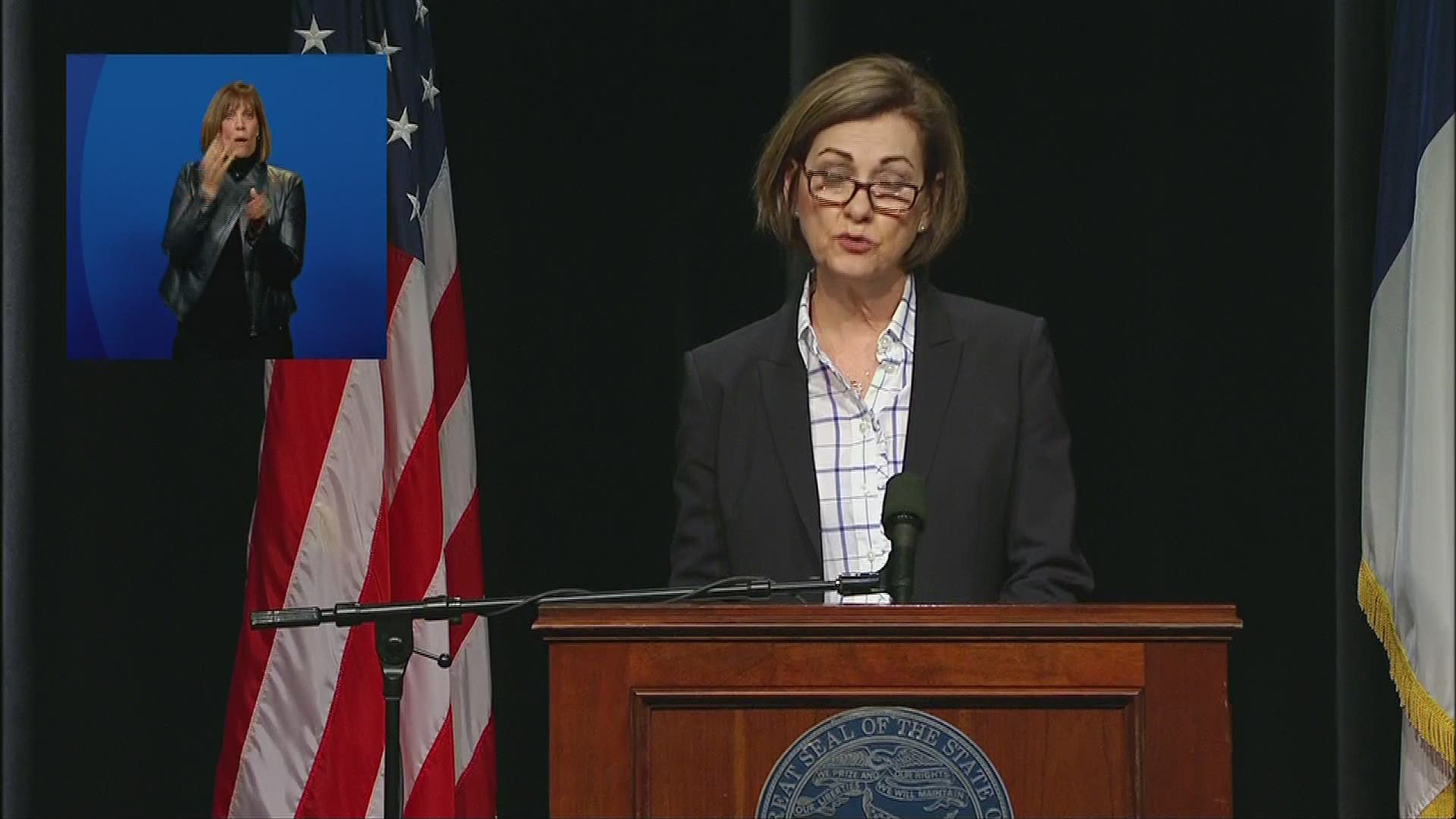JOHNSTON, Iowa — Gov. Kim Reynolds said Wednesday that Iowa is on track to open vaccine eligibility to all adults by April 5, but minority populations still face various barriers in getting their shot.
The state will start receiving more than 128,000 vaccine doses each week starting March 29 as planned. The allocation will include 18,000 Johnson & Johnson single-dose vaccines.
"The [Biden] administration anticipates that we'll receive an even larger allocation of J&J vaccine the week of April 5, and that should continue increasing during the weeks after that," the governor reported. "With this news, I am pleased to say that we remain on target to open vaccination to all Iowans beginning Monday, April 5."
Reynolds urged patience, since there will be more demand for the vaccine.
"Since the start of the pandemic, concern has been raised worldwide about the disproportionate impact of COVID-19 on racial and ethnic minority groups as well as those who may be socially and economically disadvantaged," she said. "Now that the vaccine is available, ensuring equity in its distribution and administration is a national priority."
Reynolds cited a report published last week by the Centers for Disease Control and Prevention (CDC) that said areas with more vulnerable populations had lower vaccination rates than less vulnerable areas during the first two and a half months of the U.S. vaccination program.
"While estimates based on county-level data vary widely among states disparities were observed in the majority of them," Reynolds said. "According to Iowa's current vaccine administration data on race and ethnicity 1% of Iowans receiving vaccine are African American, and 1.6% are Hispanic or Latino."
"It's important to know that this information is self-reported and up to 19% of the individuals have reported their race or ethnicity as unknown," she added.
"So while it's challenging to know exactly where we stand, we know absolutely that we still have work to do to reach these communities."
What is the state's plan to tackle this issue?
Reynolds said there are plans to use targeted outreach to minorities and other vulnerable communities to make sure all Iowans have the opportunity to be vaccinated.
She pointed to Broadlawns Medical Center in Des Moines, United Way of Central Iowa and the Corinthian Baptist Church that are teaming up to host a community vaccination clinic over the weekend.
Their goal is to vaccinate 1,000 people, and all of their appointment slots are filled.
Dr. Yogesh Shah with Broadlawns said addressing social determinants is critical in informing minority populations about COVID-19. Social determinants being a person's environment, like where they live, learn or work. It also includes their age or race.
"Broadlawns is addressing these issues by doing multiple programs in the community, and now with Corinthian Baptist Church partnership, and especially with Rev. [Jonathan] Whitfield, we have developed this for chronic conditions," Shah said. "We started with dementia care and now we are working on COVID-related cases."
Another thing health care workers have learned is expanding access to health care, like going to a patient's home or community, needs to happen more.
Many have already started utilizing telehealth or other virtual care, which according to Shah, here to stay.
"While we recognize that our vaccination clinic is not a solution to a multi-faceted health care inequality problem, it is one of the small but important steps towards building a healthy community," Shah said. "And if this model of faith communities and health communities working together can be replicated in other cities throughout the state or nationally, I strongly feel that we can become the healthiest state when all this COVID is done."
Rev. Jonathan Whitfield with Corinthian Baptist Church outlined various barriers facing minorities when it comes to getting the vaccine. Whitfield said he saw many "negative" comments towards getting a vaccine among his own congregation.
"These barriers are real, and we have to face these realities. These barriers are as thick as any wall you can imagine, because of the historical data that exists in minority communities relative to experiences with our systems," Whitfield said. "So we saw and we heard and we felt barriers of stigmatization, barriers of misinformation, barriers of misdirected information as well as barriers of access to the health care."
Whitfield said great barriers exist around seniors in his congregation when it comes to transportation to access the vaccine. Another issue is a language barrier and cultural differences between patients and possible health care providers.
"So the church within minority communities has a great representational goal as well as fight to remove all of these things," Whitfield said. "And we feel that religious institutions adding in their effort will bring about some removal by offering a place of trust, offering an ear of trust, offering the heart of care and concern, as well as representing the possible response to all of these needs that are within the hearts and the minds and the realities of minorities that live in our communities."
Watch the governor's press conference on YouTube

